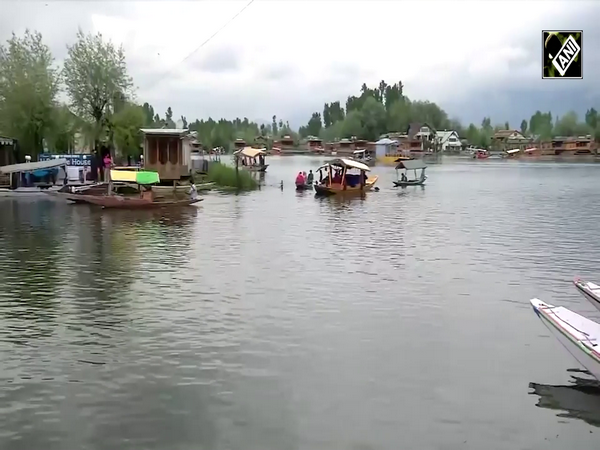Power shortage amid political power games in Pakistan
Feb 25, 2023

Gilgit [PoK], February 25 : If word-play is permitted to describe the plight of a people, the political power games in Pakistan leave its northern region powerless - energy starved.
Prolonged power cuts have led to frequent angry demonstrations in Pakistan-controlled Kashmir and Gilgit-Baltistan. The provincial authorities are using police force and issuing stern warnings to the protestors. Skardu city has been left totally without electricity for the past three months. Load-shedding has become a daily occurrence.
"The governments are stone-hearted and people are disgruntled as nothing is happening positively, Baad-e-Shimal said in its editorial.
Protests led by the Awami Action Committee have highlighted the suffering of the people. But claiming that everything is under control, the Gilgit-Baltistan government has put a ban on protests and blocking by the protesters of the Karakoram Highway, Jiglot and the Skardu Road.
Power shortage is not the only issue for the ACC protesters. Wheat and flour have disappeared from the shops, according to reports in Baad-e-Shimal, Daily K2.
The power situation has worsened over the years despite the abundance of water resources in a region that is reputedly Pakistan's principal water reservoir. But only 16 per cent of the capacity for hydropower generation has been utilized so far.
The estimated total hydropower potential of Pakistan is around 60,000 MW. Currently, the hydro installed capacity is only 10,251MW, which is around 25 per cent of the total installed capacity. Successive governments have resorted to imports as an easy solution.
Writing in The News International (February 21, 2023), irrigation and power engineer Ali Rehmat Shimshali points to the overall neglect of hydropower and preference for fuel-based power generation.
The conditions in this sector have worsened over the last year since the Ukraine conflict has sent oil prices through the roof and Pakistan has no money for imports due to its foreign exchange crises.
There have been several price hikes in fuel. The situation has only worsened across Pakistan after the latest one dictated by the International Monetary Fund (IMF) to whom the country has urgently turned for an economic bailout.
Shimsali argues that Pakistan cannot afford the fluctuation in fuel prices dictated by external factors and needs to focus on hydropower to ease the shortage.
"The country is not utilizing its full potential. Much of the untapped potential for hydropower is in the northern regions along the Indus River in the provinces of Gilgit-Baltistan, Pakistan Occupied Kashmir (PoK), Khyber Pakhtunkhwa (KP), and Jhelum River in Punjab," he says out.
"Unfortunately, approximately 51 million people in Pakistan lack access to electricity, and 90 million experience daily power outages due to unreliable power supply, both of which are having a negative impact on the economy.
"The reliance on imported fuels for thermal generation, which are subject to price fluctuations, is a major contributor to the energy crisis. The government is under significant pressure to address an annual average power deficit of 4,000MW," he states.
The Gilgit-Baltistan region, he points out, is the 'water reservoir of Pakistan' with more than 7,000 glaciers. He points to faulty conception and planning in power generation.
Common challenges to energy access include a gap between the demand and supply of electricity, a gap between installed capacity and power generation, poor construction of hydropower projects without proper environmental impact assessments, seasonal variability in the availability of hydropower, short lifespans of micro-hydropower projects, lack of technical staff and maintenance services, and delays in execution of construction projects.
There is a huge gap between the generation and installed capacities of the hydropower stations. The micro-hydro stations due to less power generation capacity can only fulfil the lighting requirements of the region but not commercial needs. Due to a lack of electricity, hotels have faced huge losses. Fresh produce like meat, vegetable, and dairy products are spoiled due to unscheduled load shedding.
He complains that people pay a high price for mixed energy sources - gas and wood to meet their daily life needs. This in turn has caused large-scale deforestation that is bad for the region's ecology.
While these are long-term measures that are required to be conceived and planned, there is no immediate relief for the northern region that remains neglected, the writer says.

















